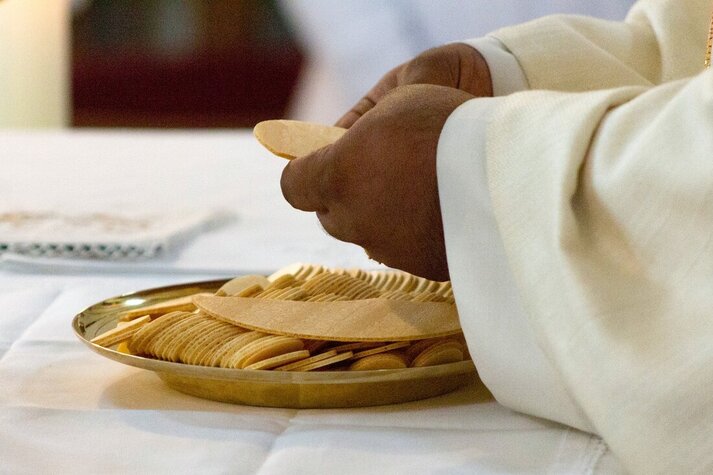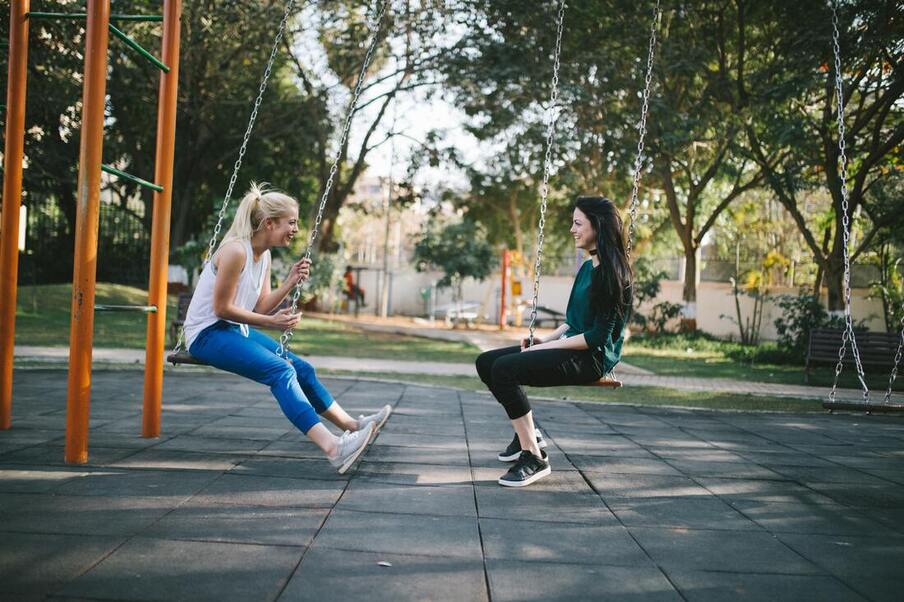Memory is not something private;
it is the path that unites us to God and to others
Pope Francis
“Remember all the ways which the Lord your God has led you” (Deut 8:2). Today’s Scripture readings begin with this command of Moses: Remember! Shortly afterward Moses reiterates: “Do not forget the Lord, your God” (v.14). Scripture has been given to us that we might overcome our forgetfulness of God. How important it is to remember this when we pray! As one of the Psalms teaches: “I will call to mind the deeds of the Lord; yes, I will remember your wonders of old” (77:11). But all those wonders too, that the Lord has worked in our own lives.
It is vital to remember the good we have received. If we do not remember it, we become strangers to ourselves, “passers-by” of existence. Without memory, we uproot ourselves from the soil that nourishes us and allow ourselves to be carried away like leaves in the wind. If we do remember, however, we bind ourselves afresh to the strongest of ties; we feel part of a living history, the living experience of a people. Memory is not something private; it is the path that unites us to God and to others. This is why in the Bible the memory of the Lord must be passed on from generation to generation. Fathers are commanded to tell the story to their sons, as we read in a beautiful passage. “When your son asks you in time to come, ‘What is the meaning of the decrees and the statutes and the ordinances which the Lord our God has commanded you?’, then you shall say to your son, ‘We were slaves… [think of the whole history of slavery!], and the Lord showed signs and wonders… before our eyes’” (Deut 6:20-22). You shall hand down this memory to your son.
“Remember all the ways which the Lord your God has led you” (Deut 8:2). Today’s Scripture readings begin with this command of Moses: Remember! Shortly afterward Moses reiterates: “Do not forget the Lord, your God” (v.14). Scripture has been given to us that we might overcome our forgetfulness of God. How important it is to remember this when we pray! As one of the Psalms teaches: “I will call to mind the deeds of the Lord; yes, I will remember your wonders of old” (77:11). But all those wonders too, that the Lord has worked in our own lives.
It is vital to remember the good we have received. If we do not remember it, we become strangers to ourselves, “passers-by” of existence. Without memory, we uproot ourselves from the soil that nourishes us and allow ourselves to be carried away like leaves in the wind. If we do remember, however, we bind ourselves afresh to the strongest of ties; we feel part of a living history, the living experience of a people. Memory is not something private; it is the path that unites us to God and to others. This is why in the Bible the memory of the Lord must be passed on from generation to generation. Fathers are commanded to tell the story to their sons, as we read in a beautiful passage. “When your son asks you in time to come, ‘What is the meaning of the decrees and the statutes and the ordinances which the Lord our God has commanded you?’, then you shall say to your son, ‘We were slaves… [think of the whole history of slavery!], and the Lord showed signs and wonders… before our eyes’” (Deut 6:20-22). You shall hand down this memory to your son.
But there is a problem: what if the chain of transmission of memories is interrupted? And how can we remember what we have only heard unless we have also experienced it? God knows how difficult it is, he knows how weak our memory is, and he has done something remarkable: he left us a memorial. He did not just leave us words, for it is easy to forget what we hear. He did not just leave us the Scriptures, for it is easy to forget what we read. He did not just leave us signs, for we can forget even what we see. He gave us Food, for it is not easy to forget something we have actually tasted. He left us Bread in which he is truly present, alive, and true, with all the flavor of his love. Receiving him we can say: “He is the Lord; he remembers me!” That is why Jesus told us: “Do this in remembrance of me” (1 Cor 11:24). Do! The Eucharist is not simply an act of remembrance; it is a fact: the Lord’s Passover is made present once again for us. In Mass, the death and resurrection of Jesus are set before us. Do this in remembrance of me: come together and celebrate the Eucharist as a community, as a people, as a family, in order to remember me. We cannot do without the Eucharist, for it is God’s memorial. And it heals our wounded memory.
The Eucharist first heals our orphaned memory. We are living at a time of great orphanage. The Eucharist heals orphaned memory. So many people have memories marked by a lack of affection and bitter disappointments caused by those who should have given them love and instead orphaned their hearts. We would like to go back and change the past, but we cannot. God, however, can heal these wounds by placing within our memory a greater love: his own love. The Eucharist brings us the Father’s faithful love, which heals our sense of being orphans. It gives us Jesus’ love, which transformed a tomb from an end to a beginning, and in the same way, can transform our lives. It fills our hearts with the consoling love of the Holy Spirit, who never leaves us alone and always heals our wounds.
Through the Eucharist, the Lord also heals our negative memory, that negativity which seeps so often into our hearts. The Lord heals this negative memory, which drags to the surface things that have gone wrong and leaves us with the sorry notion that we are useless, that we only make mistakes, that we are ourselves a mistake. Jesus comes to tell us that this is not so. He wants to be close to us. Every time we receive him, he reminds us that we are precious, that we are guests he has invited to his banquet, friends with whom he wants to dine. And not only because he is generous, but because he is truly in love with us. He sees and loves the beauty and goodness that we are. The Lord knows that evil and sins do not define us; they are diseases, infections. And he comes to heal them with the Eucharist, which contains the antibodies to our negative memory. With Jesus, we can become immune to sadness. We will always remember our failures, troubles, problems at home, and at work, our unrealised dreams. But their weight will not crush us because Jesus is present even more deeply, encouraging us with his love. This is the strength of the Eucharist, which transforms us into bringers of God, bringers of joy, not negativity. We who go to Mass can ask: What is it that we bring to the world? Is it our sadness and bitterness, or the joy of the Lord? Do we receive Holy Communion and then carry on complaining, criticising, and feeling sorry for ourselves? This does not improve anything, whereas the joy of the Lord can change lives.
Finally, the Eucharist heals our closed memory. The wounds we keep inside create problems not only for us, but also for others. They make us fearful and suspicious. We start with being closed and end up cynical and indifferent. Our wounds can lead us to react to others with detachment and arrogance, in the illusion that in this way we can control situations. Yet that is indeed an illusion, for only love can heal fear at its root and free us from the self-centredness that imprisons us. And that is what Jesus does. He approaches us gently, in the disarming simplicity of the Host. He comes as Bread broken in order to break open the shells of our selfishness. He gives of himself in order to teach us that only by opening our hearts can we be set free from our interior barriers, from the paralysis of the heart.
The Lord, offering himself to us in the simplicity of bread, also invites us not to waste our lives in chasing the myriad illusions that we think we cannot do without, yet that leave us empty within. The Eucharist satisfies our hunger for material things and kindles our desire to serve. It raises us from our comfortable and lazy lifestyle and reminds us that we are not only mouths to be fed, but also his hands, to be used to help feed others. It is especially urgent now to take care of those who hunger for food and for dignity, of those without work and those who struggle to carry on. And this we must do in a real way, as real as the Bread that Jesus gives us. Genuine closeness is needed, as are true bonds of solidarity. In the Eucharist, Jesus draws close to us: let us not turn away from those around us!
Dear brothers and sisters, let us continue our celebration of Holy Mass: the Memorial that heals our memory. Let us never forget: the Mass is the Memorial that heals memory, the memory of the heart. The Mass is the treasure that should be foremost both in the Church and in our lives. And let us also rediscover Eucharistic adoration, which continues the work of the Mass within us. This will do us much good, for it heals us within. Especially now, when our need is so great.
Pope Francis - Mass in St. Peter’s Basilica on Solemnity of Most Holy Body and Blood of Christ 2020
© Libreria Editrice Vatican
© Libreria Editrice Vatican






